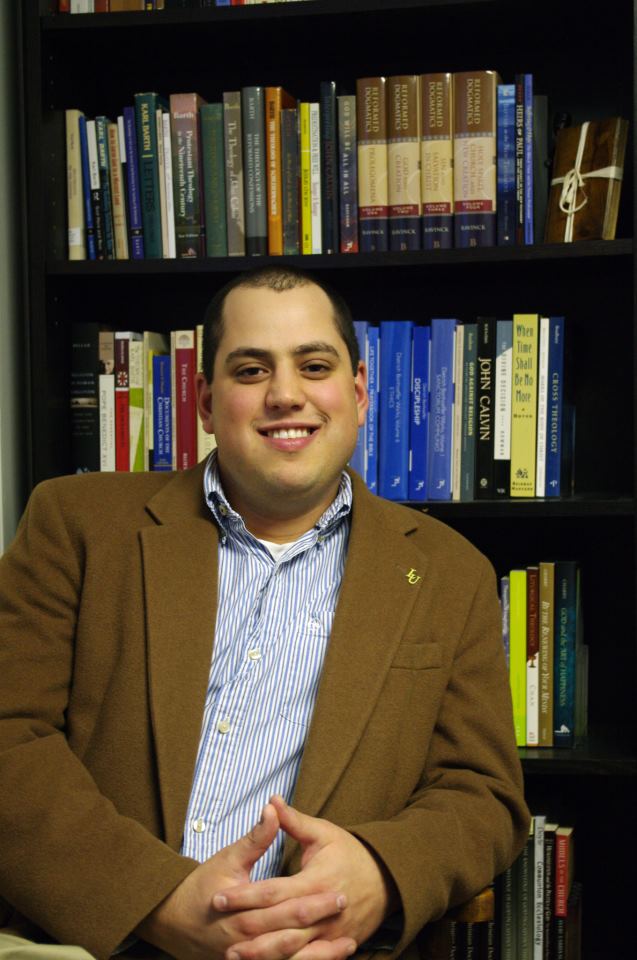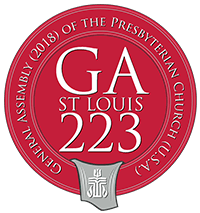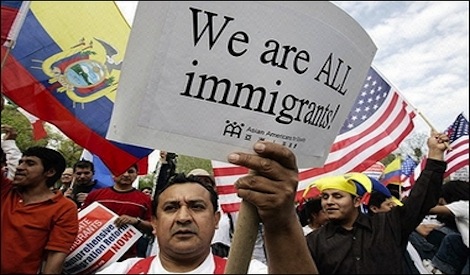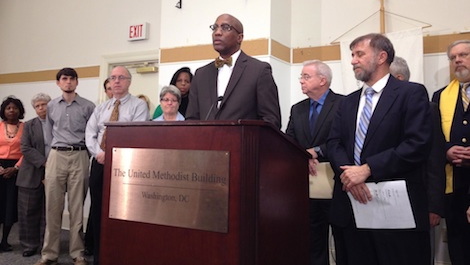Helmut Gollwitzer and Economic Justice¹
Abstract: Helmut Gollwitzer’s legacy as a politically concerned pastor and theologian is instructive for those today who want to take seriously both what Christian faith means for socio-economic justice and what that concern for socio-economic justice likewise means for the theological task. I treat three aspects of Gollwitzer’s work in order to highlight his significance for the contemporary situation: (1) his interesting application of the traditional idea of suum cuique, especially vis-à-vis Bonhoeffer; (2) the connection he draws between the Christian gospel and the necessity of combating economic-political privilege; and (3) his conclusions concerning Christian faith and theology’s failings in the face of atheist criticism of religion and what this means for continuing to do theology in the contemporary situation. One eye is kept on the Occupy Wall Street movement throughout the discussion in order to highlight how Gollwitzer’s thought illuminates matters in our own day.
By W. Travis McMaken, Assistant Professor of Religion, Lindenwood University View and Print as PDF.
View and Print as PDF.

What does a former Soviet prisoner-of-war pastor have to do with Occupy Wall Street (hereafter referred to as #OWS)? More than we might think. His name was Helmut Gollwitzer.
Gollwitzer was a noted German churchman and theologian. Academically speaking, Gollwitzer gained significant attention as a result of his debate with Herbert Braun on the nature of theological language.[2] But Gollwitzer also received broader cultural attention thanks to the popular book he wrote reflecting on the five years he spent as a prisoner of war in the Soviet Union after World War 2.[3] These accomplishments propelled Gollwitzer toward selection as the successor to the chair of his teacher—Karl Barth—at the University of Basel. He very nearly received the appointment, and the story of his near-appointment to that post reveals the good and bad in Gollwitzer’s notoriety.
Well respected as a former prisoner-of-war, pastor, and intellectual, Gollwitzer was nonetheless greatly distrusted by the Swiss authorities because of his outspoken criticisms of capitalism and nuclear armament. An April 1962 editorial summarizes the situation nicely: “The Basel authorities would have liked to appoint Gollwitzer, the distinguished scholar and persuasive preacher, to the university chair, but not Gollwitzer the representative of the so-called ‘Movement for World Peace’ and the spokesman of every anti-nuclear congress.”[4] The profoundly uncomfortable thing about Gollwitzer was his insight that a gospel, so radical as to involve God becoming a human being to enact reconciliation with the world through self-sacrifice, called for correspondingly radical political engagement.[5]
___________________________________________
What does a former Soviet prisoner-of-war pastor have to do with Occupy Wall Street? More than we might think. His name was Helmut Gollwitzer.
___________________________________________
This, of course, raises the question of how to think about the Christian’s engagement in political matters. As Gollwitzer puts it, the Christian is not entitled to decide whether or not to be involved in politics; it is a question “only of how to take part, with what motives, with what aims and methods, on which side.”[6] In other words, Christians—who are, like all people, born into human society—are always and already immersed in political life and must do their best to bring their existence in that political life into greater conformity with the gospel.
At what sort of political engagement does the gospel aim? While Gollwitzer allows for difference in opinion concerning whether and to what extent any particular policy might accomplish a given goal, he believes that Christians should be united concerning the principle toward which they strive politically.[7] That principle is “togetherness.” Gollwitzer believes that togetherness is the place where the desperate needs of contemporary society intersect with the hope embodied in biblical proclamation of the Kingdom of God, which he describes as “perfect togetherness without any conflict.”[8] Standing at this crossroads, togetherness impinges on both the “what” and the “how” questions of Christian political engagement. Promoting political initiatives ordered toward authentic and meaningful interrelation between free individuals is both the aim of all Christian political action and the criterion by which it is judged.
This account of Christian political engagement requires a shift away from regarding the Christian life merely as concerned with personal discipleship or the maintaining and advancing of one’s own religious purity. This individualistic, pietistic way of thinking is especially prevalent within Christianity in the United States. But Gollwitzer undermines this approach when speaking of the true political significance of Martin Luther’s thought: “the aim is no longer to become holy but to obey, to practice love and to be God’s helper in the world.”[9] So a Christian’s political life should always be at the service of others; that is, it should serve togetherness. Three particular ways that Gollwitzer works out this commitment to togetherness are interesting with reference to #OWS.
First, Gollwitzer creatively reinterprets a central dictum of classic ethical and political theory—suum cuique, “to each his or her own.”[10] The German equivalent of this phrase—Jedem das Seine—functioned as a propaganda tool in the Nazi regime, with roots even further back in Prussia. It even featured prominently at the Buchenwald concentration camp.[11] Dietrich Bonhoeffer addressed this concept in his Ethics. For Bonhoeffer, suum cuique highlights the individual’s basic human rights that the community must respect and maintain, even while the community arbitrates between the conflicting rights of individuals.[12] Whereas Bonhoeffer uses this principle negatively to establish an abstract safeguard of individual human dignity vis-à-vis the community, Gollwitzer deploys it positively by concretizing matters in terms of economic justice. Drawing on Marxist analysis, Gollwitzer describes how this principle is betrayed in the capitalist context: “No one in this system receives the suum cuique, neither the workers, who receive less than their due, and thus always an unjust payment, nor the owners of the means of production, who receive more than they ought, and thus always an unjust payment.”[13]
Second, Gollwitzer explores the theme of togetherness further when he defends his theologically motivated Democratic Socialism. Drawing once again on the fruit of Marxist analysis, Gollwitzer notes that virtually all human society is built on privilege and committed to the maintenance of that privilege, which Gollwitzer calls “class struggle from above.”[14] For Gollwitzer, opposition to such privilege is central to Christian existence. This opposition stems from the radical equality built into the Christian encounter with God, albeit explicated in terms of Gollwitzer’s Lutheranism: “No one has any advantages over the other, because all people have to rely on hearing and can and must help each other like brothers and sisters by means of the word.”[15] The radical dependency involved in one’s encounter with the gospel stands diametrically opposed to any form of privilege that seeks to establish distinctions or, to paraphrase Pauline language, “dividing walls” (see Eph 2.14) between people. In another place Gollwitzer talks about the inner freedom that encounter with the gospel imparts, and how this inner freedom longs for outer freedom. He then takes the next step: “what Christians long for they must also grant to others and wish for them! This is the tendency toward equality, under the constraint of Christ’s love: I cannot wish to have more than others, either of outward or inner possessions and possibilities.”[16]
___________________________________________
#OWS constitutes a prophetic indictment aimed not only at society as a whole but even more specifically and damningly at the church in particular. Gollwitzer’s not insignificant contribution is to provide the church with a theologically robust vision for recognizing movements like #OWS as just such an indictment.
___________________________________________
Third, Gollwitzer modeled this “togetherness” in his active dialog with Marxist ideas and representatives. I have noted at various points that Gollwitzer draws on Marxist analysis in his thinking, but this does not mean Gollwitzer was uncritical of Marxism.[17] For example, he suspects that Marxist thought possesses an implied eschatology insufficient to the tasks of supporting its utopian and messianic claims, providing a compelling meaning for human life, and properly safeguarding the value of human individuals as something more than a means to an end.[18] But togetherness means also that Gollwitzer must take seriously the Marxist criticism that Christianity functions as a mechanism of social control and oppression. Part of the church’s theological task resulting from this criticism is to recognize that “the world no longer takes [the church] for granted.”[19] Christianity is no longer a necessary presupposition of Western culture, no longer an intellectual and spiritual vernacular whose salience can be assumed. And this is true despite of, and perhaps precisely because of, often vociferous protestations to the contrary. Apologetics is thereby revealed to be a lost cause, and consequently “the Church . . . is thrown entirely upon its faith in the self-evidencing power of its message.”[20] As Gollwitzer puts it elsewhere, the Marxist criticism “can only be disproved by action,”[21] namely, the action of bearing witness to the gospel and especially by doing so through political engagement aimed at togetherness.
Undoubtedly, the parallels between Gollwitzer’s thought and Occupy Wall Street on these three points are striking. First, Gollwitzer’s interpretation of the suum cuique and #OWS’s criticisms of insufficiently regulated capitalism are highly suggestive. For instance, #OWS decries our society’s economic inequality, which has rapidly ballooned over the past four decades or so.[22] But Gollwitzer would see all this as predictable given that capitalism’s basic dynamic is that “profits are produced by the work of large numbers of people and appropriated by a few.” In such a system, demand for things like “development of the infrastructure, the relief of the public from fatiguing work—none of these interests of people in a more human life produce anything like so high a profit, and are therefore reduced to secondary priorities.”[23]
Second, #OWS hopes to contest this injustice by way of combatting unjust privilege. Indeed, dissatisfaction with such privilege is a fundamental component of #OWS, which can be characterized as a deep and visceral reaction to a social order that has concentrated wealth in the hands of the few while disadvantaging the many. In #OWS nomenclature, these are respectively the 1% and the 99%. But #OWS also sees clearly that, as Gollwitzer puts it, “economic power is political power.”[24] Consequently, working toward a more just distribution of economic and political power is a necessary expression of togetherness. So Gollwitzer: “What I possess in social privileges beyond my creaturely and spiritual necessities should become the rights of everyone. Thus I will not participate in the struggles of those who want to maintain their privileges but in the struggle of those who want to dismantle these privileges to favor the disadvantaged.”[25]
Third and finally, how does #OWS relate to Gollwitzer’s engagement with Marxist criticism of religion? This point is certainly less obvious than the preceding two. But perhaps the more difficult thing for the church to hear from Gollwitzer, both in his day and our own, is that the accusations made by Marxist criticism “are a catalogue of actual Christian degenerations”[26] for which Christians must take responsibility. In many ways, #OWS serves the same function for the church in the United States today. While #OWS has generated interest among and received support from individual congregations, and many church folk have been involved in and around the protest work,[27] anything like organized support from the churches at a high level has been sorely lacking. Furthermore, the ad hoc Christian support for #OWS that has occurred is drowned by the staggering number of self-identified “Christians” who have supported in the past and continue to support politicians who are not only content to perpetuate status quo economic injustice but even advocate further acceleration of the sort of policies that produced this status quo. In this context, #OWS constitutes a prophetic indictment aimed not only at society as a whole but even more specifically and damningly at the church in particular. Gollwitzer’s not insignificant contribution is to provide the church with a theologically robust vision for recognizing movements like #OWS as just such an indictment. There is a very real sense that, from Gollwitzer’s point of view, Occupy Wall Street is doing the church’s work.
See citations and footnotes for this article
Read more Unbound articles on Occupy Wall Street
Read Professor McMaken’s earlier article, “Why I Support #OWS as a Reformed Theologian“
 W. Travis McMaken is an Assistant Professor of Religion at Lindenwood University and a member of the Presbyterian Church (U.S.A.). He resides in St. Charles, Missouri, with his wife and two sons, and blogs at Die Evangelischen Theologen.
W. Travis McMaken is an Assistant Professor of Religion at Lindenwood University and a member of the Presbyterian Church (U.S.A.). He resides in St. Charles, Missouri, with his wife and two sons, and blogs at Die Evangelischen Theologen.






Unbound Social